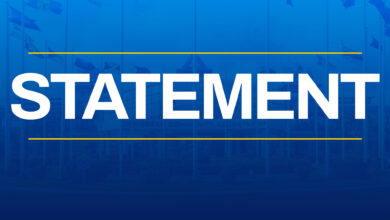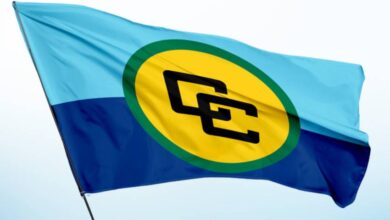European Commission approves € 13 million (approximately GYD 3 billion) assistance programme to complete Weather Radar Network Warning System
The Delegation of the European Commission in Guyana and CARIFORUM have signed a financing agreement for a €13,200,000 Regional Weather Radar Early Warning System in the Caribbean. The project is being funded by the European Union from the European Development Fund. The objective is to reduce the vulnerability of the Region to adverse weather, particularly floods and hurricanes. The funds will finance four new digital weather radar early warning stations to be constructed in Guyana, Barbados, Trinidad and Tobago, and Belize, which will be linked to the five existing stations in the Region to form a complete Regional network. Integrating radar images from multiple sources on a regular basis is already being done by Météo-France in Martinique. This “composite system” will be adapted and upgraded to provide radar images and data, throughout the Caribbean. Training will be provided in the use of all the new equipment. For each of the four countries where a radar station is to be constructed, the Government has undertaken to provide the land, infrastructure, services and local technical support and to operate and maintain the radar stations thereafter. In the case of Guyana, the site of the weather station will be near the Cheddi Jagan International Airport.
The Secretariat of CARIFORUM, located in Guyana, has the overall responsibility for the project, whilst the executing agency will be the Caribbean Meteorological Organisation, based in Trinidad. This system will promote greater co-operation and sharing of information in the Region and should thereby help reduce the amount of damage suffered by the people of the Caribbean from natural disasters.
The European Commissioner for Development and Humanitarian Aid, Poul Nielson, commenting on the programme said “Severe weather systems, such as hurricanes, have all too often proved devastating, and in some cases fatal, for communities across the Caribbean. And in the longer-term, they hamper progress and economic growth. By joining forces with its partners in the region, the EC will facilitate the detection of severe weather systems as soon as they develop. This should, in turn, provide the advance warning on which people depend to protect their families, property and businesses.”
European Union to provide €24 Million Grant (approximately GYD 5.6 billion) to support CARICOM Rice Exporting Countries
The Delegation of the European Commission in Guyana and CARIFORUM have signed a €24 Million grant as support for the rice sectors in the Caribbean Region and, in particular, in its two rice exporting countries, Guyana and Suriname. The objective of the programme is to improve the competitiveness of the Caribbean rice industry in order to contribute to the Region’s social and economic development. The programme will be managed overall by the CARIFORUM Secretariat. The Caribbean Rice Association will be delegated with the responsibility for the regional component while, with the Ministries of Agriculture in Guyana and Suriname will be the implementing agencies in the respective countries.
The following activities will be supported under the programme:-
1.Provision of technical assistance to the two Governments to enable them to set up National Strategies for the rice sector;
2. Support to achieve a sustainable water management system in both countries. While Guyana already has a Drainage and Irrigation Board, Suriname’s Water Authority and Water Boards are in the process of being re-established. In Guyana specifically, monies have been identified for the rehabilitation of the Dawa Pump and replacement of the sluices in Golden Fleece and Westbury, as well as the purchase of drain digging equipment. The Guyana Government has undertaken to set up water tariffs to allow the water systems to be maintained, a key issue for the rice sector;
3. A package of measures for the private sector, including provision of expertise to analyse financial and technological needs of operating millers and advice on access to credit; expertise and training to millers on more efficient operation of mill equipment; promotion of collaboration between farmers, millers and producers (sustainable associations);
4. A global regional fund will be set up for activities in seed production and training of farmers on improved production techniques. Funds will be allocated through a call for proposals targeting those most able to propose solutions;
5. A financial facility will be set up, following a comprehensive analysis of the situation and needs, to assist farmers, millers and exporters; the investments must be directly linked to the objectives of the programme and the beneficiaries will be expected to contribute themselves;
6. At the Regional level, market research and marketing information will be pursued. By the end of this programme, it is hoped that the rice industry in Guyana and Suriname will be better able to effectively access and compete in markets for rice both regionally and internationally. Achieving this goal will benefit all persons working in the sector.





